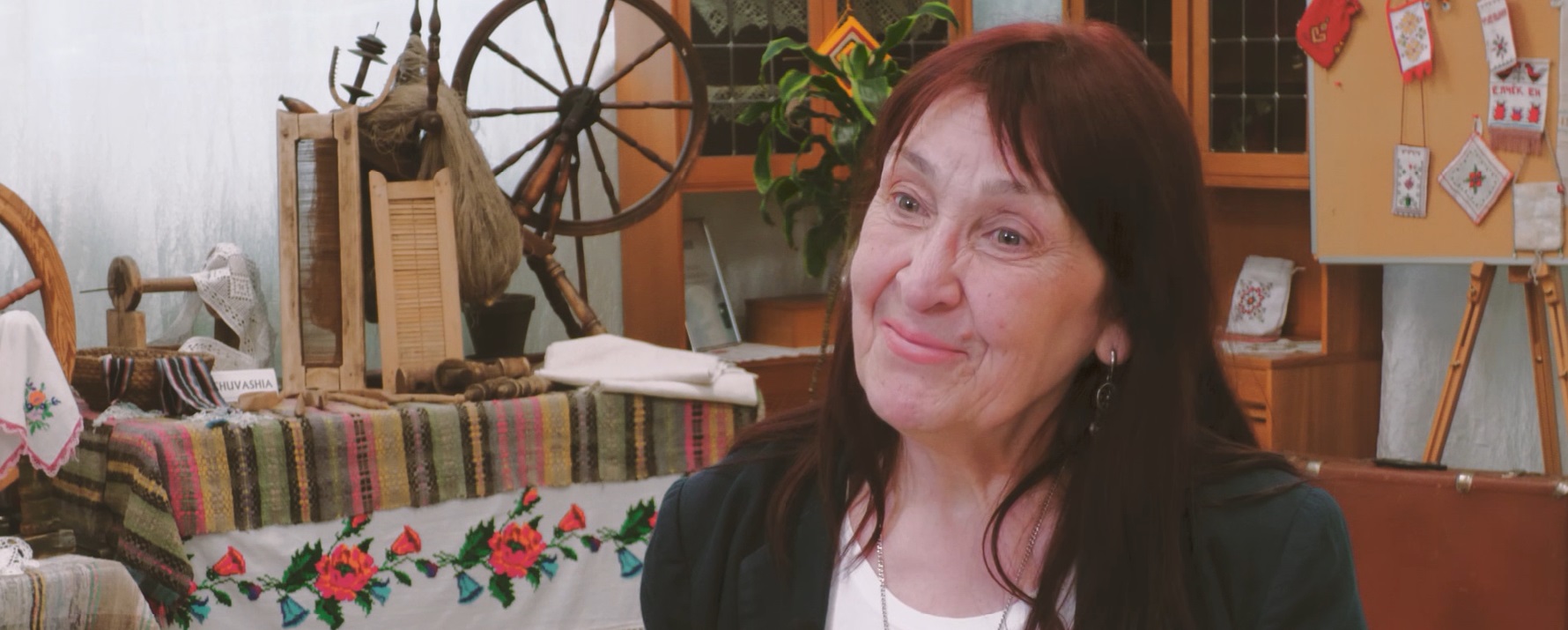Iraida Zakharova's life is full of unexpected twists and multifaceted events. A visit to a friend led to her meeting a young man from the Leningrad region who was living and working in Tallinn at the time. Six months after their meeting, they got married, and Iraida moved to Estonia. Here, she was captivated by the nature and the local people, especially the islanders, whom she considers a unique nation. They are distinguished by a unique mentality, very different from those living on the mainland.
My name is Iraida Zahharova and I’m involved in showcasing Chuvash culture in Estonia.
How did you end up in Estonia?
Very simply: life is multi-faceted and you never know what tomorrow has in store. I once went to a friend's house and met a young man there who was from the Leningrad region. He was working in Tallinn at the time. And so it happened that six months later we got married.
What do you like about Estonia?
What I probably like best about Estonia is the nature and I can say that I really like the islanders, I have a lot of acquaintances among them. I can say that the islanders are a special people in Estonia. They are simply unique, completely different people than we are here on the ’mainland’, as they say.
What surprised you about Estonia?
Perhaps the thing that surprises me most is that there are so many people around me who have difficulty expressing emotions. Because this restraint is, I suppose, natural, a national characteristic. At first, when I started living here, it probably scared me. Showing an excess of emotion here is unnecessary. This was probably the first "oooh... that’s how it is here!" moment. I have become much more restrained with my emotions and all my friends notice it. That is, when I visit my homeland, they say "aha" to me. Oh! Rida first listens to us and thinks and only then she responds and starts laughing. We, they say, have already stopped laughing and her emotions come at a delay. That change has happened and I don't know if it's good or bad.
How is your culture similar to Estonian and how are they alike?
I think it is the openness and hospitality of the Chuvash because in our culture it’s just a very important part of culture and etiquette. I mean that we don’t have a touchy-feely culture, but at the same time, in any house, whether they know you or not, they will accept you as if you’re very close friends who go back a long way. I would say that’s probably still there in the younger generation, and this makes me very happy.
Do you miss anything?
Of course, I miss my family, friends, classmates, university friends, but most of all I miss the sun, the warm weather and the sound of my language every day. I just don't get enough of it. I want to speak it every day. I do have the opportunity to correspond daily: I communicate in chats with my fellow countrymen, but it's still not the same as when you sit down, as we say, in the ’sacred corner’, and just talk heart-to-heart. This is what I’m missing.
Favourite Estonian food
Mulk’s porridge. It is very similar to our national porridge. We also cook wheat groats, mash potatoes and put them in a cast iron pot in the oven. It reminds me very much of that so I enjoy eating Mulk’s porridge.
Favourite Estonian song
My favourite song is Kaerajaan. I like it very much: it’s easy to sing and dance along to... I like it!
What still surprises you about Estonia today?
I can say that I am amazed and delighted by the ability of every Estonian to preserve their traditions, language, the distinctive flavour of their national costumes. For me, as a person engaged in ethnography, it certainly catches the eye. And I think these habits and skills are an example of how to approach ethnographic culture and how it should be presented.
How would you describe Estonia?
Multi-faceted. And it’s not only because there are over 200 different peoples living here that we can say that, right? But also because, again, every parish, every region of Estonia is unique: people are completely different, costumes and attitudes to life are completely different. The north-east and the west are absolutely distinct from one another. And therefore, I can say that for me, Estonia is multi-faceted, notwithstanding its small size.

